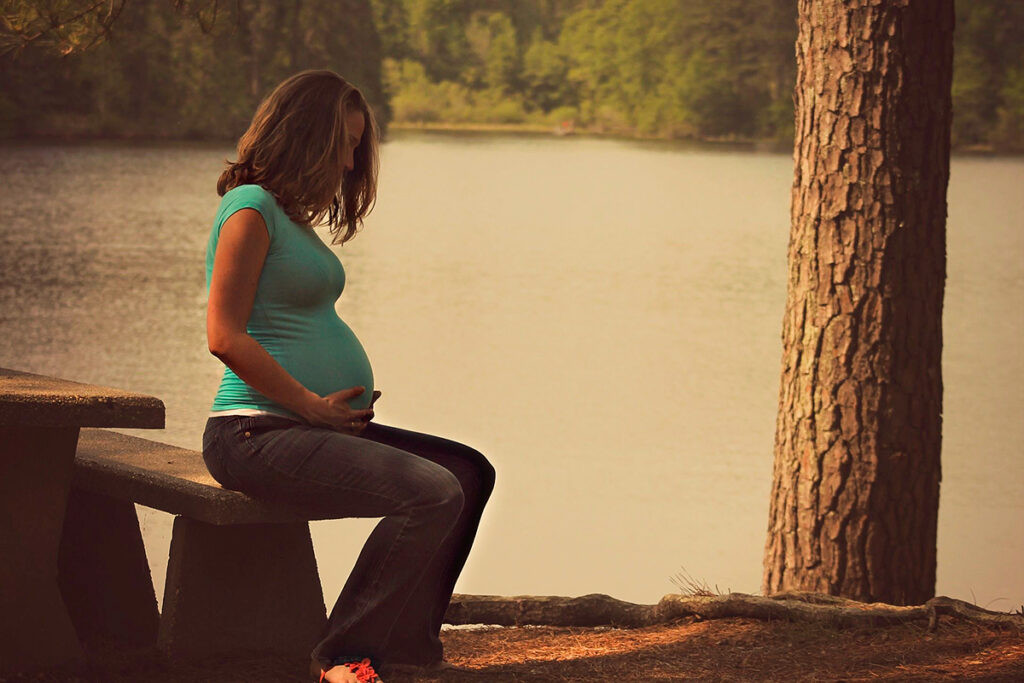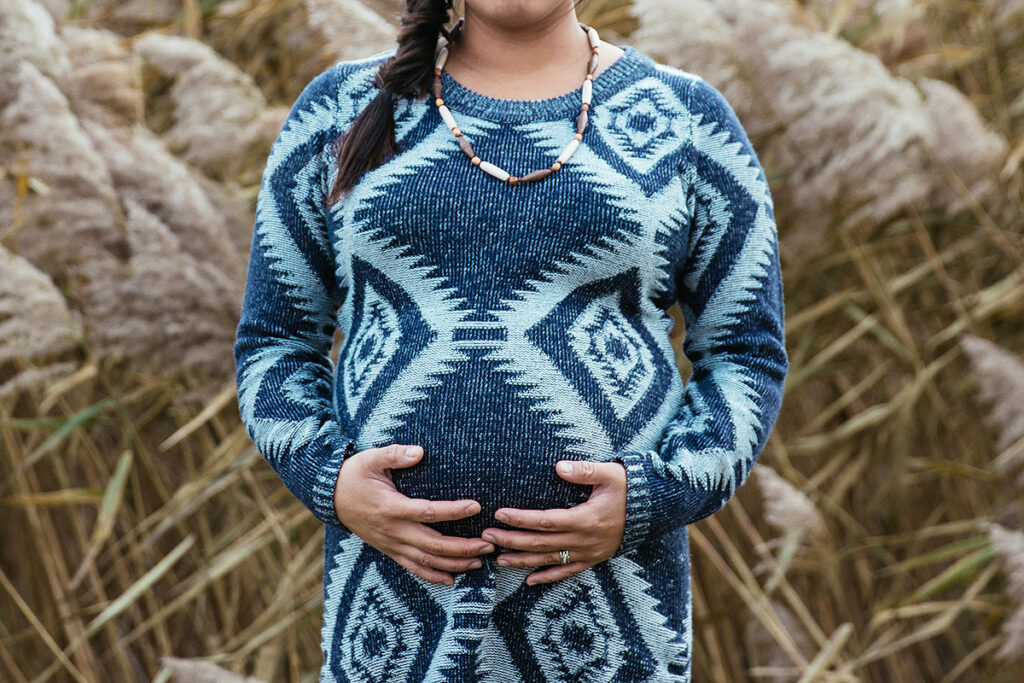Pregnant women with COVID-19 infection are at increased risk of admission to the intensive care unit, mechanical ventilation, and death. COVID-19 increases the likelihood of pregnancy complications such as premature birth, hypertension, and thromboembolic diseases. The Centers for Disease Control and Prevention (CDC) has listed pregnancy as a risk factor for severe COVID-19. The American College of Obstetricians and Gynecologists (ACOG), the Society for Maternal and Fetal Medicine (SMFM), and other women’s health organizations confirm the increased risk.
From the start of the COVID-19 pandemic to May 2021, more than 80,000 pregnant women have been infected with the coronavirus in the United States alone. The number of pregnant women infected with COVID-19 is likely to reach millions this year.
Coronavirus Disrupts The Transmission of Protective Antibodies Across the Placenta
The mother’s immune system plays a critical role during pregnancy, as the protection of the newborn from pathogens depends on the transfer of the maternal class G (IgG) antibodies across the placenta. For transmission through the placenta, the antibody must undergo glycosylation – to combine with a carbohydrate (glycan). COVID-19 changes the glycosylation profile and reduces the placental transfer of antibodies specific to SARS-CoV-2.
Newborns and infants are more likely to have severe or critical COVID-19 than older children. Therefore, the proper transmission of neutralizing antibodies is vital during pregnancy.
Pregnant women were not included in any trials of coronavirus vaccines. However, due to the increased risk of severe COVID-19 and CDC pregnancy complications, the Israeli Ministry of Health and other health organizations have recommended offering pregnant women the COVID-19 vaccine. In Israel, the vaccination campaign for pregnant women began in December 2020.
Study of transplacental transmission of antibodies to SARS-CoV-2 after vaccination and natural infection
Israeli scientists evaluated how efficiently the maternal body produces antibodies to coronavirus and transmits them through the placenta after vaccination with the BNT162b2 mRNA vaccine (Pfizer-BioNTech) and during natural infection with SARS-CoV-2 during pregnancy. The researchers analyzed the vaccine-generated IgG and IgM antibody concentrations in maternal and umbilical cord blood samples taken at 105 births at 8 Israeli medical centers.
The study involved 1,094 pregnant women from all ethnic groups in Israel (~ 75% Jews, ~ 20% Arabs, ~ 5% others). Clinical parameters did not differ between groups, except for maternal age, significantly lower in the SARS-CoV-2 group than the other two groups.
The maternal and umbilical cord blood samples were divided into 3 groups:
- 105 vaccinated;
- 94 unvaccinated with past positive PCR results for SARS-CoV-2;
- 895 unvaccinated with no confirmed SARS-CoV-2 infection.
After selection of participants based on clinical parameters, maternal and umbilical cord blood serology results were obtained for 213 mother-newborn pairs:
- 86 vaccinated (3 of whom were PCR positive during pregnancy);
- 65 unvaccinated with past positive PCR results;
- 62 uninfected unvaccinated of the control group.
Figure 1. Patient selection scheme

Maternal and Fetal Antibodies in Response To SARS-Cov-2 Infection
In response to the SARS-CoV-2 coronavirus, the body produces antibodies against:
- S – protein spike;
- RBD (receptor-binding domain) – a structure at the end of the spike protein, through which the virus binds to the ACE2 receptor and enters the cell;
- S1 – subunits of the spike protein-containing RBD;
- S2 – subunits of the spike protein, which is responsible for the fusion of the cell membranes and the virus;
- N – viral RNA.
The response of IgG antibodies in maternal (Fig. 2A) and umbilical cord (Fig. 2B) blood to antigens S1, S2, RBD, and N SARS-CoV-2 was obtained during delivery of 65 patients who were PCR-positive during pregnancy. To identify changes in the humoral response or biology of infection during pregnancy, the data were analyzed by gestational age (GA) PCR diagnostics.
Based on serologic testing at delivery (Figure 2), the rate of IgG transmission to S1, S2, RBD, and N antigens was significantly higher in PCR positive participants for SARS-CoV-2 before 30 weeks of gestation compared with participants who were PCR positive after 30 weeks of gestation.
The mother-to-fetus antibody transfer rate (TR) is the ratio of the fetal antibody level to the mother’s antibody level. Maternal-to-fetal IgG antibody transmission rates were consistently below 1 for infection occurring more than 30 weeks of gestation but were significantly increased for disease up to 30 weeks of gestation (Figure 2C).
Recent studies have shown that among patients infected in the third trimester, the transmission of SARS-CoV-2 antibodies to the fetus is significantly impaired. The results of this study confirmed the low transmission rate of antibodies in late pregnancy infections. The situation is different with a disease in the early stages of pregnancy (15-30 weeks): antibodies to coronavirus are produced in the maternal and umbilical cord blood in response to an illness during the second trimester. Antibody transmission rates were high during labor in participants who had had SARS-CoV-2 infection months before delivery. Low transmission rates in late pregnancy may reflect a delay in the transfer of antibodies across the placenta.
Figure 2. During childbirth after recovery from SARS-CoV-2 infection, the stable response of maternal and fetal antibodies was found

Maternal Infection: Neonatal Coronavirus IgM Antibodies Show SARS-CoV-2 Affected Fetus
The scientists analyzed the levels of IgG and IgM antibodies to S1, S2, RBD, and N in the serum of the mother and newborn. Antibodies to N are produced with SARS-CoV-2, but not after vaccination with BNT162b2. Antibodies to RBD are made both with SARS-CoV-2 and after immunization with BNT162b2. Analysis of the production of antibodies to N identified additional potentially infected participants in the vaccinated and control groups.
In the control group, 9 participants (14%) had IgG antibodies to N, which, together with IgG antibodies to other COVID-19 antigens (S1, S2, and RBD), corresponds to the previously formed immunity due to the previous infection. Likewise, 7 vaccinated participants (8%) had antibodies to N, three of the vaccinated participants were PCR positive during pregnancy.
Notably, in the group of PCR-positive results, 4 newborns showed a stable IgM response to all SARS-CoV-2 antigens. Another newborn showed a partial response corresponding to a violation of the placental barrier, exposure to viral antigens on the fetus, or vertical transmission virus. Clinical analysis of these cases showed that the mothers had been diagnosed with a mild SARS-CoV-2 infection that disappeared spontaneously a few weeks before delivery. Three babies were born on time, and one was born at 35 weeks after a premature rupture of the membranes. In all cases, both the mother and the newborn did not show any signs of illness after delivery.
None of the fetuses from the 86 vaccinated participants showed an IgM response to any of the vaccine-derived antigens.
Maternal and Fetal Antibodies After Vaccination
Scientists have compared the mother’s response to SARS-CoV-2 infection with two doses of the BNT162b2 vaccine when the first dose is given on day 1 and the second dose on day 21.
During the first 45 days after infection, a gradual increase in the level of IgG antibodies to S1, S2, RBD, and N was found (Fig. 3A).
During the same period, vaccinated participants who received the first dose of the vaccine showed a rapid IgG response to S1, S2, and RBD, but not to N, resulting in high antibody titers by 15 days after the first dose of vaccine (Figure 3B). Further increases in IgG levels were observed after the second dose (Figure 3B).
Fetal IgG antibody levels to S1, S2, and RBD depended on maternal IgG levels after vaccination. Noticeable antibody response was detected as early as 15 days after vaccination. As expected, further increases in IgG levels were observed after the second dose of the vaccine (Figure 3C).
During labor, maternal IgG to S1 and RBD were significantly higher in vaccinated women, while IgG to S2 and N were significantly higher in PCR-positive women. Fetal IgGs to S2 and N were markedly lower in umbilical cord blood samples from vaccinated women, while fetal IgGs for S1 and RBD were not different from those of PCR-positive women.
Significant increases in maternal and fetal IgG and maternal IgM to S1, S2, and RBD, but not N, were observed after the first dose of the vaccine and persisted at later time points. The fetal IgM response to vaccine antigens (S1, S2, RBD) was insignificant. That is consistent with the lack of direct exposure of the fetus to antigens of vaccine origin (Fig. 3D).
Figure 3. Immune response to SARS-CoV-2 infection and vaccine versus time elapsed from infection/vaccination

The Link Between Maternal and Fetal Igg Antibody Responses to SARS-Cov-2 Infection and Vaccination
The reaction of antibodies in umbilical cord blood positively correlated with the maternal response of IgG antibodies against all analyzed antigens (Fig.4A IgG-S1; Fig.4B IgG-S2; Fig.4C IgG-RBD; Fig.4D IgG-N). Antibodies were transferred across the placenta both after infection with SARS-CoV-2 and after vaccination.
Figure 4. Correlation between maternal and fetal IgG to S1, S2, RBD and N

Transmission Ratio of Igg Antibodies To S1, S2, RBD, and N to The Fetus
IgG transmission rates were obtained for the PCR-positive group and the serologically positive (previously SARS-CoV-2 survivors) and negative, vaccinated groups (N + and N-; Fig. 5).
Significant differences were found for S1 (Fig. 5A), S2 (Fig. 5B), and RBD (Fig. 5C), but not for N (Fig. 5D) between the PCR-positive and vaccinated N-groups. The carryover rates for all antibodies did not differ between the N + vaccinated and all other groups.
The Pfizer-BioNTech mRNA vaccine against COVID-19 causes a rapid increase in IgG titers and efficient transfer of antibodies across the placenta, exceeding the transfer rate observed in pregnant women with SARS-CoV-2 infection in the third trimester of pregnancy.
Figure 5. The ratio of transmission of antibodies from mother to fetus for the PCR-positive recovered group and for serologically positive and negative vaccinated groups

Conclusion
Infection with SARS-CoV-2 in mid-pregnancy creates a sustained maternal and fetal antibody response during childbirth.
Maternal IgG antibodies produced in response to vaccination in uninfected patients are easily transmitted through the placenta to the fetus. That leads to a significant and potentially protective titer of antibodies to SARS-CoV-2 in the bloodstream of newborns as early as 2 weeks after the first dose of the vaccine. The data from this study show that the COVID-19 mRNA vaccine generates sustained levels of maternal and fetal antibodies during pregnancy.
In addition to the transmission of protective antibodies through the placenta, other studies have shown that the response to vaccines involves the transfer of both S-IgG antibodies and IgA antibodies into human breast milk. That creates another line of defense for breastfed babies. Therefore, vaccination of pregnant women can provide adequate protection for the mother and newborn at very vulnerable stages of life.



